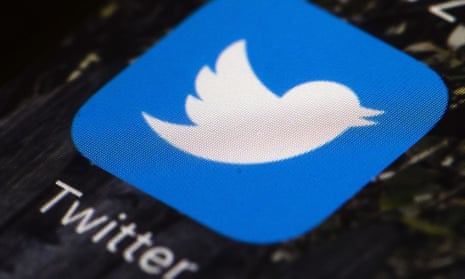Any move by the Australian government to crack down on anonymous accounts on Twitter would be ineffective and fail to reduce the amount of abuse on the platform, the social media firm has said.
Last month prime minister Scott Morrison decried the “coward’s palace” of social media, and threatened more regulation of the companies in response.
“Social media has become a coward’s palace where people can just go on there, not say who they are, destroy people’s lives and say the most foul and offensive things to people and do so with impunity,” he said.
“Now that’s not a free country where that happens. That’s not right. They should have to identify who they are and you know, the companies, if they’re not going to say who they are, well, they’re not a platform anymore. They’re a publisher.”
The government, through the Online Safety Act, has also imbued the e-safety commissioner with powers to force social media companies to hand over the personal information of people the commissioner alleges are engaging in bullying behaviour online. These new powers will come into effect at the start of 2022.
Kara Hinesley, public policy director for Twitter in Australia and New Zealand, told a panel on online anonymity on Friday that banning anonymous accounts would stifle speech for vulnerable people who need to remain anonymous online. She said it would also prove to be ineffective, and would not reduce the amount of abuse.
Hinesley, speaking at the event convened by Twitter, pointed to a 2004 Korean law, overturned in 2012, which required the largest Korean-based websites to collect ID information for people posting on their websites in a bid to reduce election information, and later cyberbullying online.
When it was overturned, the court found there was insufficient evidence to demonstrate that there had been a decrease in hateful comments, defamation or online bullying as a result of the policy.
Hinesley said it also presented the dangers of companies being required to store identification information of its users.
“What did in fact happen was there was a breach of 35 million South Koreans’ national identification numbers that was stolen. So this law was actually repealed in 2012. And was something that was found and to chip away and erode at those freedoms,” she said.
Hinesley said anonymity online should not be equated to abuse and harassment online. She pointed to research Twitter released in August about racist abuse on the platform towards England players during the Euro 2020 final. She said the company’s research found 99% of the accounts that were banned for more than 1,600 tweets of abuse were not anonymous.
Our data suggests that ID verification would have been unlikely to prevent the abuse from happening - as of the permanently suspended accounts, 99% of account owners were identifiable.
— Twitter UK (@TwitterUK) August 10, 2021
“Anonymity and abuse are not connected in a way that they’re being connected right now, both through legislation and the public debate. So I really want to make sure that that’s what we’re separating out.”
Prof David Kaye, former United Nations special rapporteur on the promotion and protection of the right to freedom of opinion and expression said anonymity and pseudonymity have been essential to public debate throughout history.
“It’s been essential to individual human development in repressive societies – the ability to seek information or receive information in a kind of cone of privacy, if we want to think of it like that, under the blanket of anonymity,” he said.
“It has allowed people historically to explore their heritage, to explore their sexual orientation, their gender identity, and we could go on and on, and anybody could come up with examples where a failure of anonymity or publicity of one’s persona might lead to real harm.”
